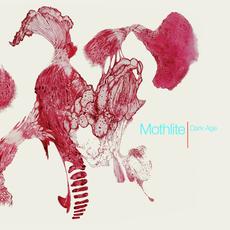
Album Review: Mothlite - Dark Age
There's so much music written, recorded, and released each year that it's impossible for it to all maintain artistic integrity. Music was, at one point, an expression of thoughts and emotions that swirled inside the head of a creator, but as it became a business that has increasingly catered to the whims of fans, a growing proportion of the music we hear is written with the explicit purpose in mind of appealing to as many people as possible. It's not something I can call the wrong way of approaching music, since there is clearly a demand for the end results, but there's a spark missing in the sounds when it's apparent the burning need to express something wasn't there. Whether it turns out good or bad, I always respect music more when it comes from a place of honesty.
Mothlite's “Dark Age” is one of those records that feels more honest than the usual fare. It's certainly not the most commercially viable route to have taken, and the disconnect between the music and anything you would expect to be hearing instills the album with a sense of purpose. It's easy to hear that this was a labor of love, music that needed to be written and recorded for the artist's own well-being, not to sell more records. To that end, “Dark Age” is already a success, regardless of how much impact it makes on the listener. The impact on the artist is apparent, and that's the most important mark a piece of art can make.
“Dark Age” is a record of ambiance and rhythm, a delicate balance considering the two tend to negate the other's existence. At times, the balance can be a bit off, but much of the record is able to achieve the desired effect. Not unlike the work Devin Townsend did with “Ki” and “Ghost”, “Dark Age” juxtaposes light sounds with heavy emotional content. The songs might come across as flippant or inconsequential at first blush, but they carry much under the surface, waiting to be discovered by more engaged listeners.
“Wounded Lions” is a slow start, one that doesn't set the parameters the rest of the music will play by. The following tracks, “Disappear” and “Seeing In The Dark” open the playbook, putting together more developed musical ideas and layered vocals that add melodic content to the rhythms. The songs sound simple, but require that approach to make room for the emotional content. The record is primarily an expression of deep emotion, which would get bogged down by myriad layers of dense and technical orchestration.
In fact, when extra layers are added on “The Blood”, it becomes immediately clear what the songs need to be strongest. The spartan structures of the songs mandate simplicity, each extra layer of sound dulling the impact. Bigger is not always better, and sometimes more is simple more. That tends to be the case with the less effective songs on “Dark Age”.
The confounding thing about “Dark Age” is that for all it has going for it, the album is hard to listen to in anything but short bursts. Perhaps it's an effect of not having the proper tolerance built up to honest music, or it could be that the nature of the music itself doesn't lend itself to extended exposure, but the cold sounds begin to grow wearisome before the end of the record approaches. There's no discernible difference in quality from the front half of the album to the back, save for the cluttered and tuneless “Dreamsinister Nightspore”, but the path gets obscured the further along it we travel.
“Dark Age” is one of those records I respect a great deal, even if I'm not sure how I feel about it.

